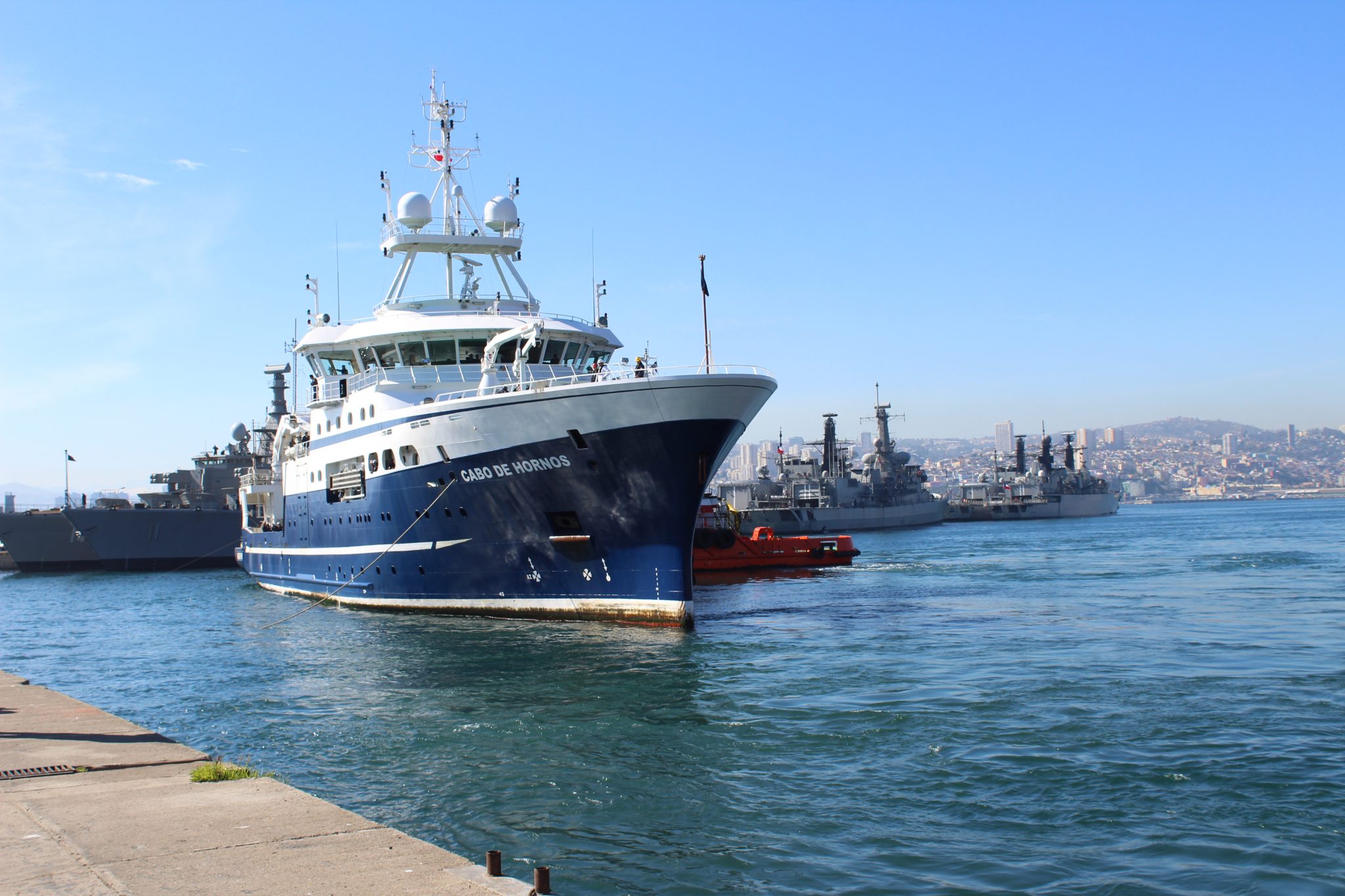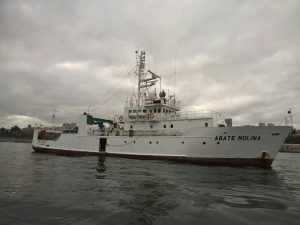IFOP will account with two vessels to quantify horse mackerel biomass
March 15th, 2018Abate Molina and Cabo de Hornos ship will sail to investigate the resource between the regions of Arica and Valparaíso
A team of nine professionals from Fisheries Development Institute (IFOP) embarked this March 9 in the port of Valparaíso (Valparaíso Region) to investigate horse mackerel.
The ship AGS-61 “Cabo de Hornos” owned by Chilean Navy B / C “Abate Molina” from Subsecretary of Fisheries and Aquaculture will be used, and administered by Fisheries Development Institute for the execution of this study.
The campaign will allow to quantify horse mackerel biomass, among the regions of Arica and Parinacota and Valparaíso, by means of hydroacoustic method. The project leader is fishing engineer José Córdova, the research cruise will last 42 days.
José Córdova explained “Acoustic sampling will be systematic with transects perpendicular to the coast, which will be carried out during the daylight period when horse mackerel deepens and is detected by the echo sounder. Given the gregarious nature of the resource, in areas where no horse mackerel is detected, prospecting during the night will continue, which will be suspended when detecting the presence of the resource on the surface to continue its evaluation during the daytime period “.
The study specific objectives are: To estimate abundance (in number) and biomass (in weight) of horse mackerel in the study area. Estimate the composition of size, weight, age and sexual proportion of horse mackerel stock in the area and period of study. To determine the composition of main food items of jack mackerel in the study area. To determine the spatial and bathymetric situation of horse mackerel and zooplankton distribution, with special emphasis on horse mackerel main food items, in the study area and its relationship with oceanographic conditions. To determine accompanying fauna and its relative importance in identification sets. Survey of ecosystem information from acoustic cruises to support fisheries management.

